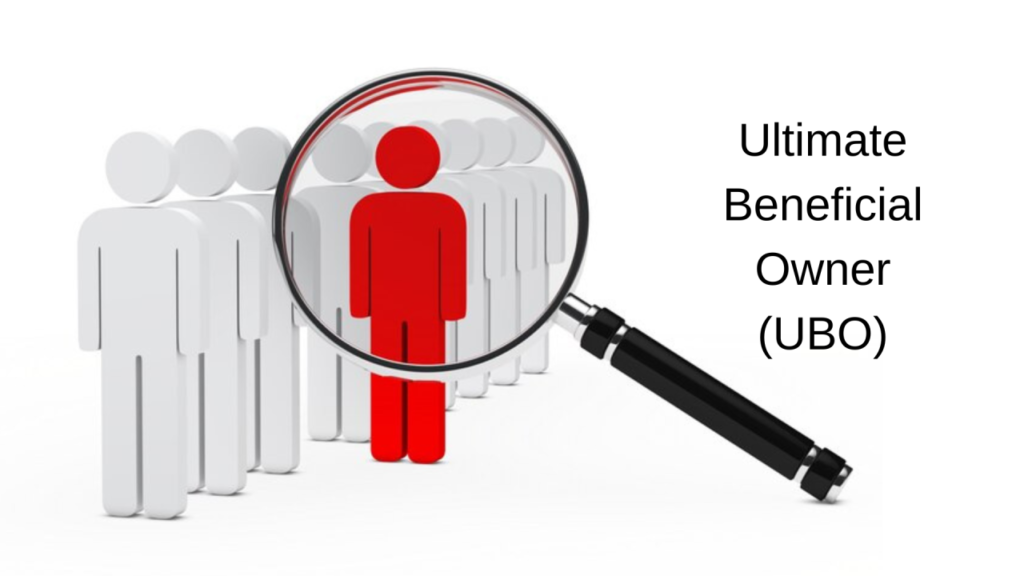Identification of the Ultimate Beneficial Owner (UBO) of a company is crucial before proceeding with business dealings with other companies. After the revelation of the Panama Paper leaks, the government sector observed a major gap between the beneficial ownership transparency and the client due diligence mechanism.
Due to this lack of beneficiary transparency, the monetary damage from the corporate attacks was reported to be $12.5 billion. This immense number of corporate scams led businesses to integrate UBO verification, mainly to dissuade money laundering and insider trading scams.
This blog encompasses a detailed analysis of the UBO verification solutions and their influence on stimulating business operations.
What is UBO? An Analysis of Regulatory Framework
An Ultimate Beneficial Owner (UBO) is a person who owns and has significant control over the business. It is a crucial element of the enhanced Know Your Business (KYB) and Anti-Money Laundering (AML) regulatory framework. UBO verification is a strategic approach that aims to ensure the legitimacy of the entities controlling and operating a business. Different businesses pose different levels of risks depending on their targeted customers and the companies they actively deal with.
To effectively assess the credentials of UBOs, businesses are required to screen through several beneficial ownership registers. These registers accumulate the business credentials of a company’s real owners, ensuring an enhanced level of public accountability. Here is the breakdown of the regulatory framework associated with the UBO verification:
- The FATF’s 10th recommendation stresses the consideration of the beneficial owners through the implementation of financial data assessment.
- The 13th article of the 4th AML directive emphasizes the need to take strategic measures to investigate the UBO’s identities thoroughly.
Also Read: how to check if a company is legitimate
Understanding the Global UBO Identification Requirements
UBO verification is necessary to investigate the beneficial owner’s legal standings in the corporate world. In accordance with this authentication practice, some of the global UBO verification requirements are discussed below:
| European Union (EU) UBO Requirement
The 4th AML directive formulated by the European Union was a major step taken by the regulatory bodies to integrate UBO verification checks. Since then, various laws have been passed, requiring UBO requirements during the client onboarding procedures. The EU countries are required to set up publicly available registers to address the identification concerns. United States UBO Requirements The Financial Crimes Enforcement Network (FinCEN) highlights the incorporation of customer due diligence checks during the KYB process. Additionally, financial institutions are required to evaluate the identities of beneficial owners for a streamlined business verification process. |
A Guide to the Working Mechanism Ultimate Beneficial Owner Verification
The KYB compliance process requires businesses to thoroughly conduct UBO verification for secure corporate operations. For this reason, an understanding of its working mechanism is necessary, which is discussed below:
- The first step towards an effective UBO verification process is the assessment of the company’s corporate structure. It includes a thorough analysis of the UBO’s direct and indirect business dealings with related businesses.
- The next step is to conduct an enhanced UBO due diligence process. It includes the evaluation of the company and its proprietors.
- UBO’s previous business records and financial transactions are examined, which provides a detailed analysis of their share registers and past trust deeds.
Identifying the Complexities During the Identification of Beneficial Owners
During the evaluation of the UBO verification procedures, businesses face several challenges that affect corporate transparency during UBO screening. Some of the most common challenges are:
- The unavailability of the UBO database complicates the data profiling of ultimate beneficial owners. It directly affects the quality and credibility of the UBO screening process due to insufficient data analysis.
- Due to the sheer volume of available data, businesses are unable to comply with the KYB regulations during the client onboarding process.
- The inconsistency of the UBO data available in the public registers complicates the screening of the risks associated with various proprietors, shareholders, and ultimate beneficial owners.
Practical Strategies to Boost UBO Verification Solutions
The utilization of effective data providers provides businesses access to all the necessary UBO information. The assessment of the comprehensive UBO datasets ensures credible identification of the UBO’s risk profiles and past financial patterns.
Additionally, professional assistance from skilled compliance officers is crucial for businesses to filter through the information and analyze all the necessary information accurately in real-time. Through the integration of these strategies, businesses can mitigate the overall instances of financial crimes and risks associated with the onboarding of unrecognized beneficiaries.
Concluding Remarks
UBO verification is an essential component of the KYB compliance process. This approach helps businesses screen the UBO data from curated datasets to evaluate the data available in public registers and databases. Therefore, the integration of automated screening checks is necessary to filter data effectively in order to identify and rule out illicit UBOs during the business onboarding process. UBO verification must be ensured by the businesses to protect their organizational practices from financial crimes and non-regulatory business operations in the long-run.


